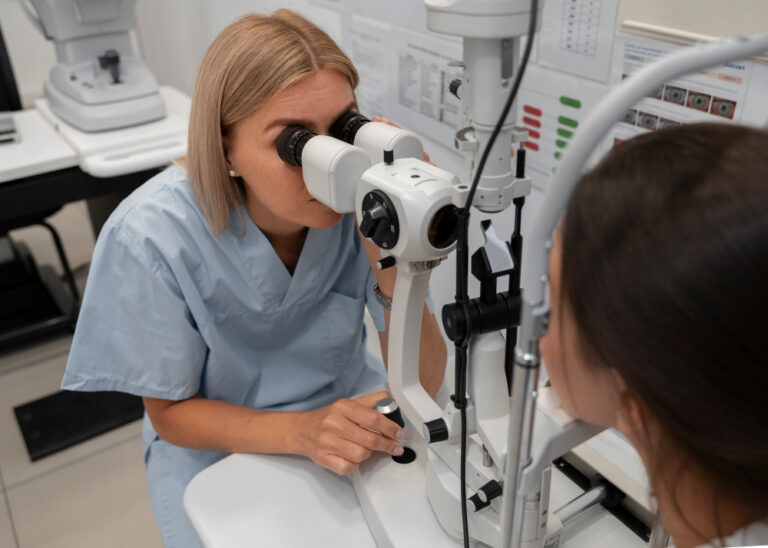Medical Malpractice vs Negligence: Key Differences
As experienced divorce lawyers at LawOfficeOfBrianKelly, we’ve seen how confusing legal terms can be. One question we often hear is, “How does medical malpractice differ from negligence?” It’s a crucial distinction that could impact your case and your life. In this article, I’ll break down the key differences in simple terms. Let’s clear up the confusion once and for all.
As stated in the “U.S. National Library of Medicine,” medical malpractice occurs when a health professional causes harm by not following accepted medical standards. Negligence is a broader term, meaning any careless act causing harm, not just in healthcare. Medical malpractice is a specific type of negligence related to healthcare providers.
Introduction to Medical Malpractice and Negligence
Medical malpractice and negligence often involve complex legal standards that hold healthcare providers accountable when their failure to meet expected care guidelines causes patient harm.
In other words, mistakes in healthcare can happen in various ways, such as wrong diagnoses, surgical errors, wrong medications, or poor aftercare. Examples of medical mistakes include diagnosing the wrong illness, making errors during surgery, giving the wrong meds, or not informing patients properly about risks.
When these mistakes occur, patients can suffer physically, emotionally, and financially. Their health might get worse, they may become disabled, or they could die. Additionally, they may face more medical bills, lose income, and endure pain and suffering because of these mistakes.
So to speak, to prove a medical malpractice case, it is necessary to review the patient’s medical records, get expert opinions, and gather evidence to see if the healthcare provider did not meet the expected standards. Patients can sue for malpractice to receive compensation and to hold the healthcare provider responsible.
Healthcare providers must follow care standards and act ethically to prevent medical mistakes. Patients should communicate openly with their doctors, ask questions, and seek a second opinion if needed to ensure their safety and well-being.
Key Differences Between Malpractice and Negligence
Malpractice occurs when a professional fails to meet their field’s standard care level, causing patient harm.
In general terms, this includes medical malpractice, which happens when a healthcare provider makes a mistake in diagnosis or treatment that harms a patient. Negligence is when someone doesn’t take reasonable care, leading to someone else getting hurt. For example, if a driver ignores traffic rules and causes an accident.
Come to think of it, basically, malpractice is a type of negligence done by a professional in their job, while negligence is a broader term for any lack of reasonable care that causes harm. Both involve failing to meet a duty of care and can lead to legal trouble for the person at fault.
Examples of Medical Malpractice Cases
As outlined previously, medical malpractice cases can involve scenarios like a surgeon operating on the wrong body part, a doctor misdiagnosing a life-threatening illness, or a healthcare provider prescribing a medication that the patient is allergic to.
In a basic sense, these mistakes can cause serious harm or even death to a patient. Sometimes, doctors or other healthcare workers act carelessly by not following standard procedures or giving the right care. If a patient gets hurt because of medical mistakes, they might be able to file a claim for money to cover medical costs, lost wages, pain and suffering, and other damages. It’s important for patients to talk to a skilled lawyer to find out if they have a valid case and to learn about their rights and options for seeking justice.
In the most basic sense, doctors and other healthcare providers must give a certain level of care to their patients. If they fail to do this, the results can be very bad. Medical malpractice cases often need a lot of investigation and expert opinions to prove fault and show how much harm was done. Patients should get legal help as soon as possible if they think they have been hurt by medical malpractice.
Common Forms of Medical Negligence
Misdiagnosis, delayed diagnosis, medication errors, surgical errors, anesthesia errors, and lack of informed consent are among the numerous forms that medical negligence can take.
To break it down, misdiagnosis happens when a doctor gets a patient’s condition wrong, leading to the wrong treatment or missing the chance to treat it early. Delayed diagnosis is when a doctor takes too long to figure out what’s wrong, making things worse for the patient. Medication errors can happen if the doctor prescribes the wrong medicine, the wrong dose, or doesn’t check for allergies or how the drugs might interact.
In other words, surgical errors might involve operating on the wrong part of the body, leaving tools inside the patient, or doing the wrong surgery. Anesthesia mistakes can be very dangerous, causing serious harm or even death if not done correctly. Lack of informed consent means the patient wasn’t fully told about the risks, benefits, and options of a treatment, which is very important for them to make the best decision about their care. All these medical mistakes can have serious effects, like unnecessary pain, worse health, or even death.

Legal Consequences of Malpractice vs. Negligence
Malpractice can result in more severe legal repercussions compared to negligence due to the violation of professional standards and responsibilities.
To put it briefly, when doctors, lawyers, or other professionals don’t do their job properly and harm someone, they’re said to have committed malpractice. Malpractice can lead to serious consequences like losing their license, paying fines, or getting sued.
Negligence is a broader term that means not being careful enough in any situation, not just for professionals. If you are negligent, you might have to pay for any damages or even face criminal charges, depending on what happened.
So to speak, in both malpractice and negligence cases, the person who got hurt needs to prove that the other person didn’t do their job right and that this caused the harm. Legal cases like these can be complex and take a lot of time, needing expert witnesses, medical records, and other evidence.
To avoid these problems, professionals need to follow the standards in their field. They should keep learning and practicing good risk management to protect themselves and their clients or patients.
My Concluding Thoughts
While both medical malpractice and negligence involve a breach of duty by a healthcare provider, the key difference lies in the level of care expected.
What LawOfficeOfBrianKelly is being fans of is, medical malpractice involves a deviation from the standard of care that results in harm to a patient, whereas negligence refers to a failure to act in a reasonable manner that leads to injury or damages.










